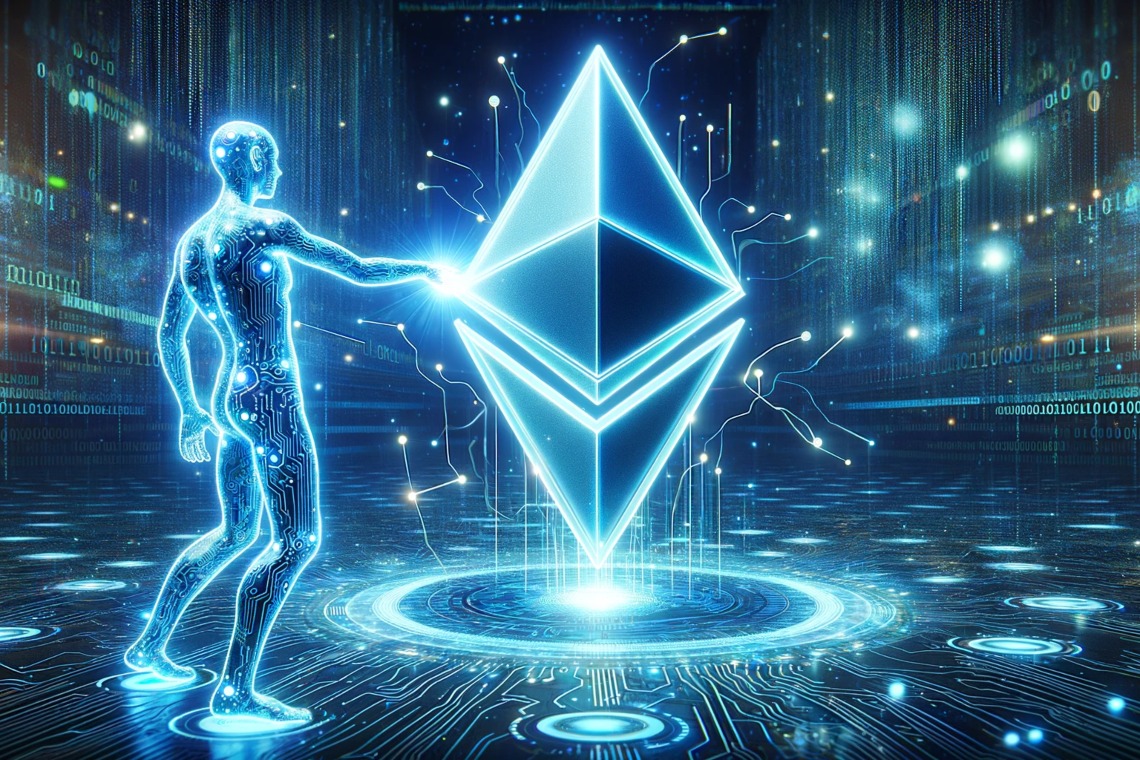
In response to the security challenges of the crypto world, the co-founder of Ethereum, Vitalik Buterin, pioneered the idea of leveraging artificial intelligence (AI) to revolutionize code verification and mitigate vulnerabilities in blockchain projects.
In 2023, cryptocurrency users faced staggering losses of around $2 billion due to hacks and scams; Ethereum bore the brunt of these losses due to its vast ecosystem and its importance in the blockchain space.
In the tumultuous crypto landscape, where innovation and risk coexist, ensuring the security and integrity of blockchain projects is crucial.
Vitalik Buterin’s idea: exploiting AI for the security of the Ethereum ecosystem
Buterin’s proposal heralds a potential paradigm shift in the approach to verifying smart contracts and blockchain protocols. Traditional automated tools, while valuable, often fail to adapt to evolving threats and vulnerabilities.
However, AI presents a dynamic solution, capable of learning from new information and contexts, thus improving its effectiveness in identifying and addressing vulnerabilities that may escape static analysis.
The intersection of AI and blockchain promises to strengthen security protocols, as highlighted by developers in the Ethereum community.
By leveraging AI’s deep analysis and pattern recognition capabilities, developers can augment human-assisted verification, thus pushing the boundaries of code checking.
The anonymous developer behind TokenFi, a project dedicated to AI-assisted code auditing, highlights the adaptability of AI tools, which can be continuously updated with new datasets and models.
This adaptability is especially crucial in the rapidly evolving landscape of smart contract security, where zero-day vulnerabilities pose significant risks.
Furthermore, the synergy between artificial intelligence systems and human skills offers a formidable defense against potential exploits and breaches.
RJ Ke, developer of Ethereum’s layer-2 Taiko, highlights the role of AI in predictive analytics based on historical and forecast data, complementing the insights gained from human inspection.
By streamlining the review process and proactively identifying issues, this collaborative approach not only strengthens the integrity of the blockchain code but also promotes innovation within the Ethereum ecosystem.
The large scale of user losses highlights the need for solutions
The scale of losses suffered by cryptocurrency users highlights the urgency of addressing security vulnerabilities in blockchain projects.
Ethereum, as the leading blockchain platform in terms of active users and value locked, has become a prime target for bad actors seeking to exploit weaknesses in its ecosystem.
The $1.35 billion lost in around 170 incidents on Ethereum in 2023 underlines the severity of the ongoing challenge, with high-profile exploits, such as the $230 million attack on Multichain, serving as a reminder of what is at stake .
In this context, Vitalik Buterin’s proposal for AI-based code verification emerges as a beacon of hope to strengthen the resilience of Ethereum and the broader blockchain ecosystem.
By leveraging the power of AI to augment existing review processes, developers can proactively identify and mitigate vulnerabilities, thereby mitigating risks posed by malicious actors and improving the trust and security of blockchain projects.
Furthermore, the resurgence of interest in AI, fueled by recent advances and market dynamics, offers fertile ground for integrating AI technologies into blockchain security frameworks.
The convergence of these cutting-edge domains has the potential to redefine the standards of security and reliability in the cryptocurrency landscape, paving the way for a more robust and resilient future.
The potential benefits of artificial intelligence (AI): Has Vitalik Buterin found the solution?
The potential benefits of AI-powered code audits go beyond simple security improvements. By simplifying the review process and minimizing the risk of vulnerabilities, blockchain projects can gain greater credibility and trust among users and investors.
In an industry where trust is key, implementing robust security measures can be a competitive advantage, attracting more participants and promoting broader adoption of blockchain technology.
Furthermore, the adoption of AI-based security solutions has implications that go beyond individual projects and impact the overall resilience and stability of the cryptocurrency ecosystem.
As Ethereum projects embrace AI-assisted verification, the ripple effects will likely reverberate across the blockchain landscape, establishing new standards of security and reliability.
This collaborative approach to security highlights the ethos of decentralization, as developers and stakeholders come together to strengthen the foundations of the decentralized economy.
However, integrating AI into code verification processes is not without its challenges and considerations. As with any emerging technology, there are concerns about the reliability and interpretability of AI algorithms, particularly in mission-critical areas such as blockchain security.
Ensuring transparency and accountability in AI-driven audit systems is essential to foster trust and mitigate the risks of unintended consequences.
The technical details of the Ethereum co-founder’s idea
Using AI for code reviews does not negate the importance of human expertise and oversight. While AI can augment and accelerate the review process, human judgment remains indispensable to contextualize findings, assess risks, and make informed decisions.
Therefore, a balanced approach that leverages the complementary strengths of AI and human intelligence is critical to achieving robust and reliable security protocols.
Beyond technical considerations, the adoption of AI-based code audits raises broader ethical and regulatory questions. With the increasing integration of AI technologies into critical infrastructures, ensuring responsible and ethical use is imperative to safeguard the interests of users and stakeholders.
Addressing concerns related to privacy, bias and liability will be essential to promoting trust and legitimacy in AI-based security frameworks.
Despite these challenges, the potential benefits of AI-assisted code verifications for blockchain projects are undeniable.
By harnessing the power of AI to proactively identify and mitigate vulnerabilities, developers can improve the resilience and security of blockchain ecosystems, paving the way for a more trustworthy and sustainable decentralized future.
As Ethereum co-founder Vitalik Buterin rightly noted, the biggest technical risk that Ethereum and other blockchain platforms face is the presence of bugs and vulnerabilities in the code.
By embracing AI-driven solutions for code verification, the Ethereum community and the broader blockchain ecosystem can collectively address this challenge and strengthen the foundation of decentralized finance and innovation.
Conclusions
In conclusion, the proposal to leverage artificial intelligence for code verification represents a significant step forward in improving the security and integrity of blockchain projects.
By embracing the transformative potential of AI-powered security solutions, developers can strengthen defenses against emerging threats, foster trust among users and investors, and propel the decentralized economy toward a more resilient and prosperous future.
As the cryptocurrency landscape continues to evolve, the integration of AI technologies promises to redefine the standards of security and trust, catalyzing innovation and unlocking new possibilities for decentralized finance and blockchain technology.
Source: https://cryptonomist.ch/2024/02/22/vitalik-buterin-verifiche-codice-ethereum-ai-intelligenza-artificiale/

